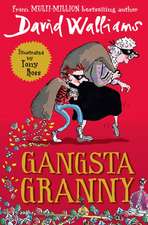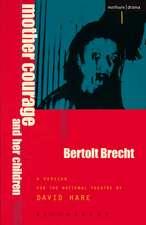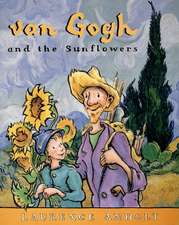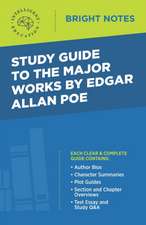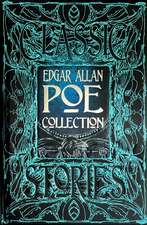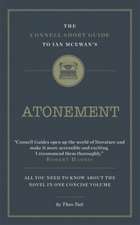Pygmalion
Autor George Bernard Shawen Limba Engleză Paperback – 6 iul 2019
Born in Dublin, Shaw moved to London in 1876, where he struggled to establish himself as a writer and novelist, and embarked on a rigorous process of self-education. By the mid-1880s he had become a respected theatre and music critic. Following a political awakening, he joined the gradualist Fabian Society and became its most prominent pamphleteer. Shaw had been writing plays for years before his first public success, Arms and the Man in 1894. Influenced by Henrik Ibsen, he sought to introduce a new realism into English-language drama, using his plays as vehicles to disseminate his political, social and religious ideas. By the early twentieth century his reputation as a dramatist was secured with a series of critical and popular successes that included Major Barbara, The Doctor's Dilemma and Caesar and Cleopatra.
... In 1938 he provided the screenplay for a filmed version of Pygmalion for which he received an Academy Award. His appetite for politics and controversy remained undiminished; by the late 1920s he had largely renounced Fabian Society gradualism and often wrote and spoke favourably of dictatorships of the right and left--he expressed admiration for both Mussolini and Stalin. In the final decade of his life he made fewer public statements, but continued to write prolifically until shortly before his death, aged ninety-four, having refused all state honours, including the Order of Merit in 1946.
Since Shaw's death scholarly and critical opinion about his works has varied, but he has regularly been rated among British dramatists as second only to Shakespeare; analysts recognise his extensive influence on generations of English-language playwrights. The word Shavian has entered the language as encapsulating Shaw's ideas and his means of expressing them. (wikipedia.org)
Preț: 91.91 lei
Nou
17.59€ • 18.41$ • 14.64£
Carte tipărită la comandă
Livrare economică 31 martie-14 aprilie
Specificații
ISBN-10: 164439233X
Pagini: 124
Dimensiuni: 152 x 229 x 7 mm
Greutate: 0.19 kg
Editura: Indoeuropeanpublishing.com
Notă biografică
Descriere
George Bernard Shaw's witty comedy of manners, Pygmalion includes an introduction by Nicholas Grene in Penguin Classics.
Pygmalion both delighted and scandalized its first audiences in 1914. A brilliantly witty reworking of the classical tale of the sculptor Pygmalion, who falls in love with his perfect female statue, it is also a barbed attack on the British class system and a statement of Shaw's feminist views. In Shaw's hands, the phoneticist Henry Higgins is the Pygmalion figure who believes he can transform Eliza Doolittle, a cockney flower girl, into a duchess at ease in polite society. The one thing he overlooks is that his 'creation' has a mind of her own. Adapted into the Oscar-winning musical film My Fair Lady starring Audrey Hepburn and Rex Harrison in 1964, Pygmalion
This is the definitive text produced under the editorial supervision of Dan H. Laurence, with an illuminating introduction by Nicholas Grene, discussing the language and politics of the play. Also included in this volume is Shaw's preface, as well as his 'sequel' written for the first publication in 1916, to rebut public demand for a more conventially romantic ending.
Although essentially shy, Dublin-born George Bernard Shaw (1856-1950) created the persona of GBS, the showman, satirist, conversationalist, critic, pundit, wit, intellectual buffoon and dramatist. Commentators brought a new adjective into English: 'Shavian', a term used to embody all his brilliant qualities. Deeply concerned by what he saw as the exploitation of the working class, Shaw was an active Socialist and a brilliant platform speaker. He remains the only person ever to have been awarded both the Nobel Prize in Literature and an Oscar.
If you enjoyed Pygmalion, you might like Oscar Wilde's The Picture of Dorian Gray, also available in Penguin Classics.
Textul de pe ultima copertă
One of George Bernard Shaw's best-known plays, Pygmalion was a rousing success on the London and New York stages, an entertaining motion picture and a great hit with its musical version, My Fair Lady. An updated and considerably revised version of the ancient Greek legend of Pygmalion and Galatea, the 20th-century story pokes fun at the antiquated British class system.
In Shaw's clever adaptation, Professor Henry Higgins, a linguistic expert, takes on a bet that he can transform an awkward cockney flower seller into a refined young lady simply by polishing her manners and changing the way she speaks. In the process of convincing society that his creation is a mysterious royal figure, the Professor also falls in love with his elegant handiwork.
The irresistible theme of the emerging butterfly, together with Shaw's brilliant dialogue and splendid skills as a playwright, have made Pygmalion one of the most popular comedies in the English language. A staple of college drama courses, it is still widely performed.

